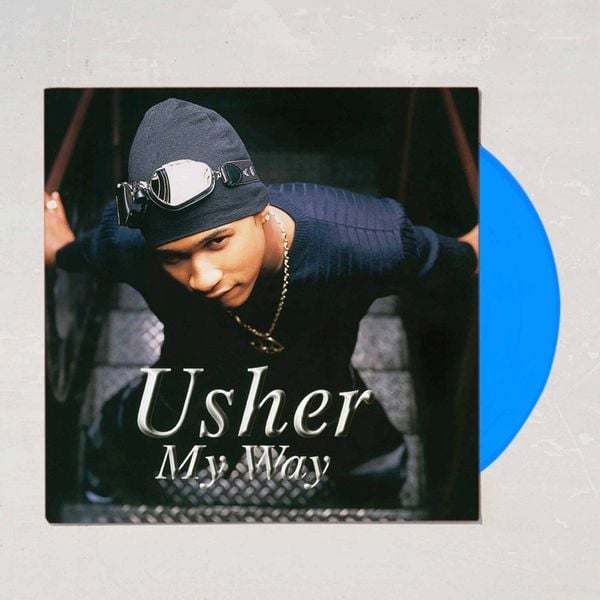
2 on the Billboard 200 one month prior to the release of My Way. The song was pre-“Confessions,” nearly a decade before Usher’s grandiose 2004 track, and the slight melodrama of “You Make Me Wanna…” bolstered the single to No.

In the multicolored visual for the track, Usher is doe-eyed and ripped, performing as clones of himself while serenading his absent platonic female friend about wanting to ditch his girlfriend for her. My Way opens with a reintroduction to Usher on “You Make Me Wanna…” where the teenage heartthrob presents his vocal maturation alongside mid-tempo production from Dupri and euphonious acoustic guitar from Manuel Seal. Reid’s intuition proved right - Usher and Dupri hit the ground running for another round of artist development and to formulate what would become Usher’s first classic album. Dupri had a knack for collaborating with young artists during the ’90s, like R&B female quintet Xscape and rap duo Kris Kross, and Reid envisioned Usher as Dupri’s next passion project. The album had new jack swing appeal, despite the subgenre reaching its end in 1994, putting Usher at a crossroads.Ĭoncerned about her son’s future in the music business, Patton returned Usher to Atlanta where he participated in more local talent shows and graduated high school, impressing Reid, who simultaneously observed the rise of Atlanta producer and So So Def Recordings founder Jermaine Dupri. A teenage Usher took to Combs’ lessons in urban entertainment, but his eponymous album debut stalled on the Billboard 200.

Flown to New York City to partake in Combs’ Flavor Camp, Usher was exposed to hip-hop opulence, groupies and round-the-clock recording sessions while gaining experience as a music industry newcomer. Undecided if his new signee should be dropped from the label roster, Reid looked to Bad Boy Records founder Sean Combs - then known as Puff Daddy.

Usher’s introductory single “Call Me a Mack” found modest success, creating a dilemma for Reid, who also noticed that Usher’s vocals were adjusting due to puberty. Patton became Usher’s full-time manager while Reid landed the young crooner a placement on the soundtrack for the 1993 Tupac Shakur and Janet Jackson-led film Poetic Justice. Reid, who signed the future child star on the spot after he sang Boyz II Men’s “End of the Road” during an audition. Hearsay about 13-year-old Usher made its way through the grapevine and into the boardroom of LaFace co-founder L.A. Alexander, former bodyguard of ’80s R&B nonconformist Bobby Brown. Soon thereafter, Patton didn’t foresee the quintet taking off, pulling her son from the group and placing him into regional talent shows until he caught the eye of A.J.

Born in Dallas before residing in Chattanooga, Tennessee, for a period, Usher was brought to Atlanta to join local kiddie group NuBeginning. Before the teenage R&B charmer established himself during the late-’90s, Usher was first managed by his mother, Jonetta Patton, who saw the vision of her first son becoming a high-profile artist.


 0 kommentar(er)
0 kommentar(er)
